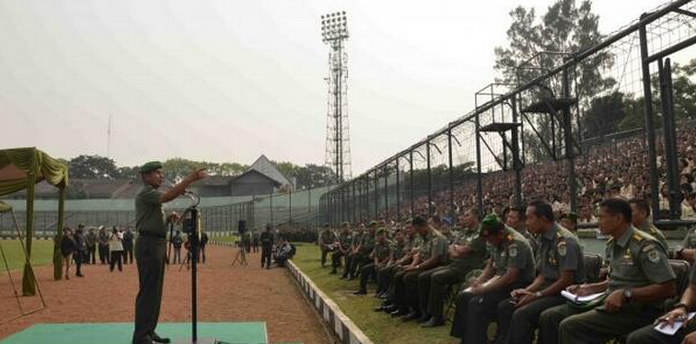 For this week’s final instalment of suggests from Washington DC, I’ve rounded up a mix of expertise from both sides of the pond.
For this week’s final instalment of suggests from Washington DC, I’ve rounded up a mix of expertise from both sides of the pond.
Kicking off this week is a Wall Street Journal piece by CNAS’ Ely Ratner on how to counter Chinese aggression in the South China Sea. More specifically, he argues that there are policy steps the US can take in the near future. Those steps include providing regional partners with greater maritime domain awareness as well as reversing a previous position and declaring China’s occupation of the Scarborough Shoal illegal.
Also from CNAS, you can follow the highlights from its eighth annual conference on national security on #CNAS2014 which covered topics like US leadership, Syria, China’s rise, robotics and veterans affairs. Speakers included Congressman Paul Ryan and National Security Adviser Susan Rise. Here are a few snippets:
Amb Rice: on DPRK, US expects to focus more on trilat coop with Japan and RoK #CNAS2014 @CNASdc
— S. Kleine-Ahlbrandt (@ska_kongshan) June 11, 2014
At #CNAS2014, @VJS_Policy makes an interesting point: given the structural problems of rising powers, Sino-US relations are actually OK.
— Daniel W. Drezner (@dandrezner) June 11, 2014
Ryan supports refueling the @USNavy aircraft carrier George Washington, keeping carrier in Japan. #CNAS2014
— Marcus Weisgerber (@MarcusReports) June 11, 2014
Turning now to Southeast Asia and Indonesia’s upcoming presidential elections on 9 July, Evan Laksmana analyses Jokowi’s defence policy platform. He says Indonesia’s next president should look beyond just modernising TNI (pictured above):
The bottom line is that defense transformation is not about fulfilling material needs. It is about institutional and paradigmatic shifts on how the military views and structures itself, educates and trains its members, as well as how it equips itself and plans to fight.
North Korea has unexpectedly agreed to launch a reinvestigation into the abduction of Japanese citizens during the Cold War. On East Asia Forum, Owen Lindsay writes that, although considered to be a success on Japanese PM Shinzo Abe’s behalf, the reinvestigation’s findings might not bring any closure to the matter due to public and political furore over specific cases.
War on The Rocks has partnered with the National Consortium for the Study of Terrorism and Responses to Terrorism (START) to publish a series of infographics based on data from their Global Terrorism Database and related START projects. This week’s shows trends in global terrorism activity which, also highlighted in the comments thread, is not ‘uniformly global’. In our region, it’s concentrated in the Philippines and Southern Thailand.
This week we tip our hat to ANU’s Professors Hugh White and Desmond Ball who were included in this year’s Queen’s Birthday Order of Australia Honours for their individual contributions to Australian strategic and defence thinking. Read their citations here. We also offer our congratulations to the Royal Australian Navy on becoming the largest Australian organisation to achieve White Ribbon accreditation, given to workplaces that demonstrate a culture of zero tolerance of men’s violence against women.
Video
Last week CSIS released a new report ‘Power and Order in Asia’ that polled regional strategy elites on Asia Pacific economic growth and community building and their implications for US policy. Among many things, the report found there was broad support for the rebalance but concern about implementation, and that regional economic crises were the greatest threat to national security. For the video and audio of the related panel discussion, see here.
Podcast
Linking back to an earlier item on terrorism, Loopcast hosted an interesting discussion between J.M. Berger and Daveed Gartenstein-Ross on the evolution of al-Qaeda.
Natalie Sambhi is an analyst at ASPI and editor of The Strategist, and has recently completed a visiting fellowship at the Center for a New American Security (CNAS). Image courtesy of Twitter user TNI_AD.